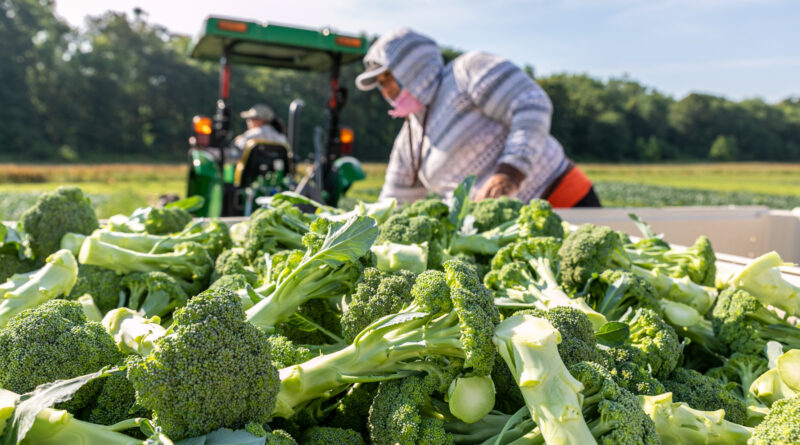Fighting Climate Change, Winning on Food Security, and Saving Our Broccoli
The climate crisis is no longer a distant threat that we can afford to ignore. Currently, its impact is being felt across the United States, particularly in the realm of food production. As extreme weather events become more frequent and intense, our food supply is increasingly at risk. It is time for us to recognize the urgency of this issue and take bold action to address it.
The effects of the climate crisis on our food supply are multifaceted. Droughts, floods, and other extreme weather events can damage crops, decrease yields, and increase the likelihood of food shortages. Rising temperatures can also have a significant impact on the quality of our food. For example, the recent cold weather snap in California is forecasted to have a major impact on crops such as broccoli, cauliflower, celery, and lettuce. While picky eaters everywhere may have just given a collective cheer, these crops are core to a healthy plate and are just a few examples of what’s at stake.
In recent years, we have seen a number of severe droughts and heatwaves that have devastated crops and led to food shortages. The degradation of soil quality due to drought and extreme weather events can also have long-term impacts on the productivity of our agricultural lands. In addition, extreme weather events like hurricanes and floods have disrupted supply chains and made it difficult to transport food to areas in need.
A disrupted food supply chain can lead to increased food prices, which can disproportionately affect low-income families who are already struggling to make ends meet. Which can also lead to food insecurity and malnutrition, particularly in rural and low-income communities.
There are steps we can take to address the impact of the climate crisis on our food supply. Investing in climate-resilient agriculture practices, such as crop rotation and soil conservation, which help mitigate the impact of extreme weather events. Also, the development of more sustainable food systems, including plant-based diets and local food production, which reduce our reliance on resource-intensive animal agriculture and long-distance transportation.
Food security is only one reason we take action to reduce our carbon emissions and slow the pace of the climate crisis by transitioning to renewable energy sources, promoting energy efficiency, and supporting policies that incentivize sustainable practices across all sectors of the economy. By investing in climate-resilient agriculture, promoting sustainable food systems, and reducing our carbon emissions, we can ensure that our food supply—including access to every kid’s favorite: broccoli—remains secure and accessible for generations to come.
Originally written for and published on RealClear Energy.

